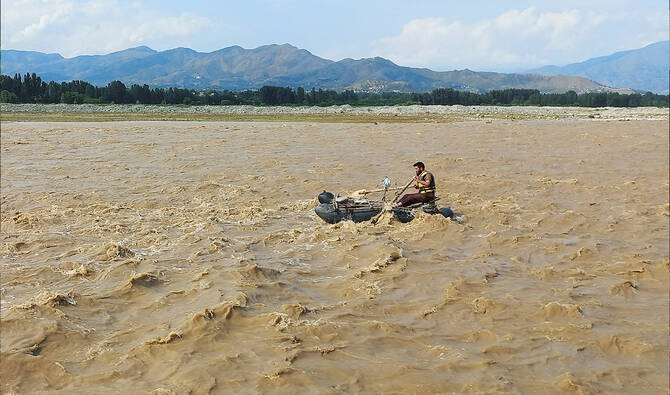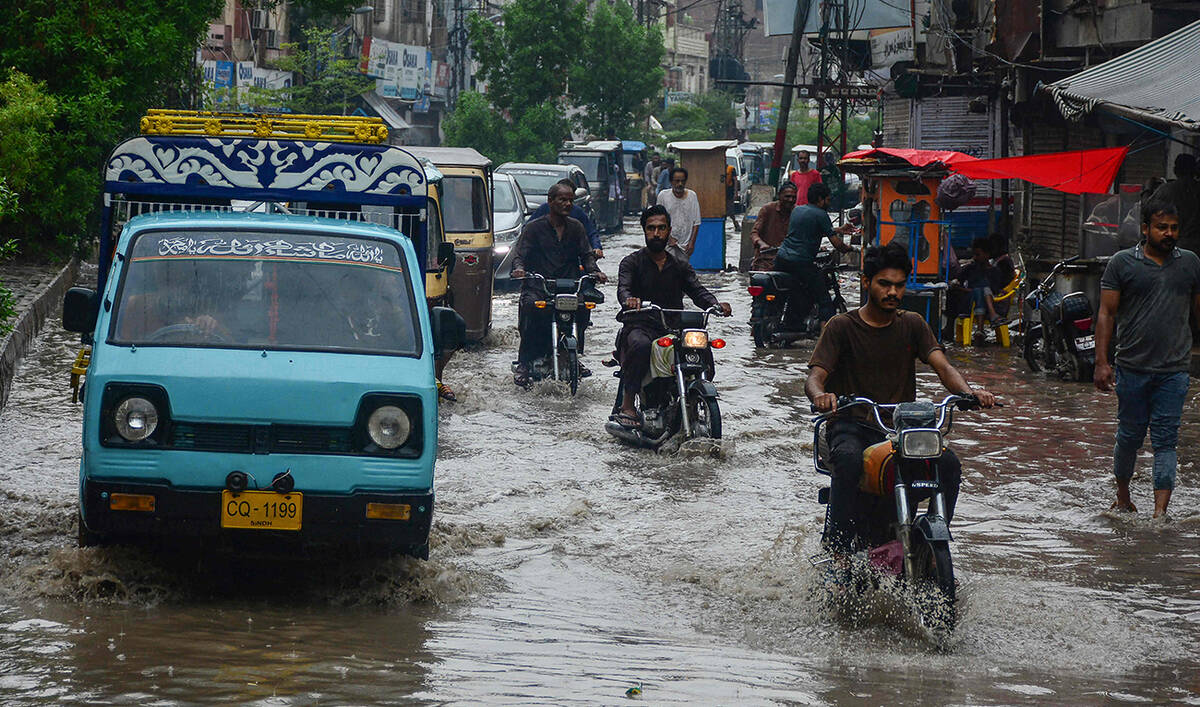BEIRUT: Lebanon’s Saad Hariri is on track to become prime minister for a third time after winning the backing of a majority of MPs in official consultations on Thursday, and is expected to launch negotiations on a coalition government.
The post of prime minister is reserved for a Sunni Muslim in Lebanon’s sectarian power sharing system, and the Western-backed Hariri was the clear frontrunner as the country’s leading Sunni despite losing more than a third of his MPs in a May 6 election.
Lebanon's president began consultations on Thursday with lawmakers on naming a new prime minister following this month's parliamentary elections and amid increasing pressures by the US and its Arab allies on the militant Hezbollah group.
President Michel Aoun was holding the official talks with MPs who were holding separate meetings with him on Thursday. The meetings are due to continue into the afternoon. Aoun must designate the candidate with the greatest backing.
By noon, many of the blocs, including the two largest in Parliament, named Hariri as their favorite.
The new coalition government is expected to reflect the enhanced political position of the Iran-backed Shiite group Hezbollah and allies that support its possession of arms, which together won at least 70 of Parliament’s 128 seats.
Hariri wins backing
While Hariri won wide backing, Hezbollah MPs named nobody for the post. The group would cooperate “positively” with whoever was designated, Mohammed Raad, head of Hezbollah’s parliamentary bloc, said after meeting Aoun.
Hezbollah, which has 13 seats in the legislature, did not name its own candidate for the premiership as it has done in the past — signaling it will likely go along with Hariri's re-appointment despite tense relations between the Iran-allied Shiite group and the Western-backed Hariri.
All Lebanese leaders have called for the rapid formation of a new government that will aim to revitalize a stagnant economy situation and address unsustainable public debt levels.
But like the outgoing Cabinet, the new government will have to balance out the interests of all the main competing Lebanese parties and may take time.
Hezbollah, which is designated a terrorist group by the US, intends to secure three Cabinet seats in the next coalition government, an increase from the two portfolios it held in the outgoing Cabinet of 30 ministers, a senior official familiar with the group’s thinking told Reuters.
A UN-backed tribunal has indicted five Hezbollah members in the 2005 assassination of Hariri's father and former Premier Rafik Hariri. Hezbollah denies the charges.
Hezbollah, which has to date held only marginal Cabinet posts, is also seeking more significant service-providing ministries in the new Cabinet, sources familiar with its thinking have told Reuters.
Hezbollah also believes a Cabinet post should be allocated to one of its Sunni allies who wrested seats away from Hariri’s Future Movement.
The staunchly anti-Hezbollah Lebanese Forces party, which almost doubled its number of MPs to 15, is also seeking a bigger slice of Cabinet portfolios.
Parliament re-elected the Hezbollah-allied Shiite politician Nabih Berri as its speaker on Wednesday, extending his tenure in the post he has held since 1992. Another Hezbollah ally, Elie Ferzli, was elected as his deputy. A wave of sanctions by the US and its Arab allies has targeted Hezbollah, which made gains in this month's balloting and which says it wants to play a bigger role in Lebanon's new government. Those demands could complicate Hariri's mission in the coming weeks.
The six GCC countries and the US consider Hezbollah a terrorist organization while the European Union only labels its military wing as a terrorist group.
“This action highlights the duplicity and disgraceful conduct of Hezbollah and its Iranian backers,” said Secretary of the Treasury Steven T. Mnuchin in a statement. "Despite Nasrallah’s claims, Hezbollah uses financiers like Bazzi who are tied to drug dealers, and who launder money to fund terrorism,”


























